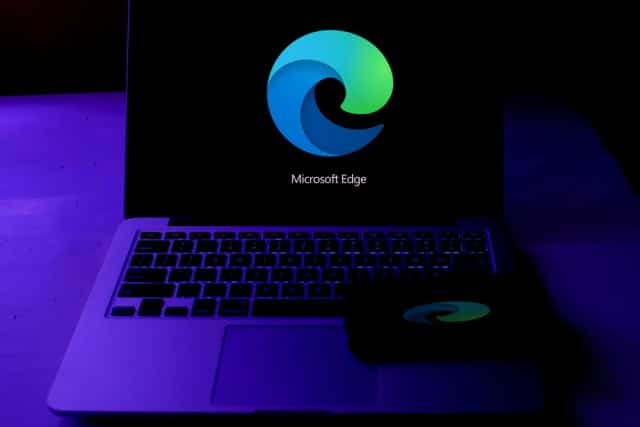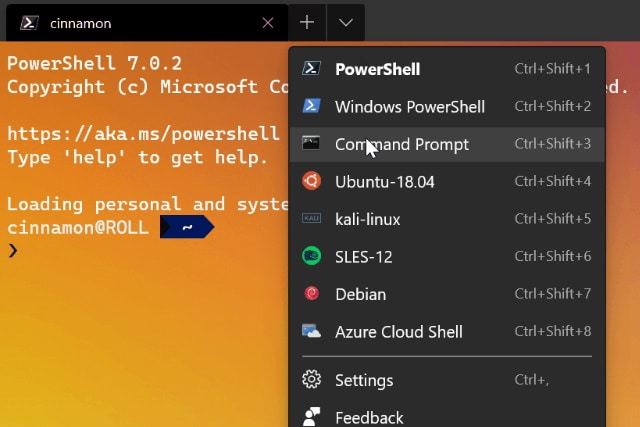
HUAWEI launches AMD variant of the MateBook 13, but there’s a huge catch
I’m a huge fan of AMD desktop processors and GPUs, but the company’s mobile chips? Not so much. Don’t get me wrong, there have been some decent AMD-powered laptops over the years, but historically, Intel processors have been the best for notebooks.
Until recently, that is. AMD’s new mobile Ryzen 4000 processors have received universal acclaim thanks to impressive performance and long battery life. The new Ryzen mobile chips are a legit alternative to Intel.

Microsoft pushes new Edge browser to Windows 8 and the unsupported Windows 7
Having already started to push the Chromium-based version of Edge to Windows 10 users, Microsoft is now doing the same for older versions of Windows.
With the KB4567409 update, Microsoft is bringing the new version of Edge not only to people who are still using Windows 8.1, but also those who are still on Windows 7 -- which is interesting because Windows 7 is no longer supported.

The hidden value of historic communications in email security
Very rarely in life is certainty guaranteed. Almost every decision we make is made imperfectly, without complete knowledge and based on a gut-checked risk assessment. When it comes to protecting your organization from phishing attacks, this still rings true. Yet, most email security providers still see through a black-and-white lens and act in terms of absolute certainty. As a result, they effectively protect against the known bad, but let unfamiliar threats slip right through.
Employees at every level of your company are making hundreds of email decisions every day -- open this, delete that, respond to this, leave that for tomorrow. With so much inbox noise, a potential phishing email can infiltrate easily -- and can impact an entire organization profoundly.

Cloud computing in Europe: Speculations on EU cloud tech in post-pandemic era
We see the European market today as the hottest area of the global cloud in a pivotal moment. While US cloud giants battle for world domination, China is building its "Great Cloud," Russia is testing its sovereign internet, and Europe is busy creating its own digital sovereignty.
The EU recently declared a massive digital transformation for its economy in the next decade where cloud and AI technologies will play an essential role. So what exactly can we expect from the European cloud industry in the short term?

Microsoft releases Windows Terminal Preview 1.1 and it's packed with new features
It's only a month since Microsoft released the first completed version of Windows Terminal and just a week since the company published its roadmap for Terminal 2.0. Starting the journey towards version 2, a preview version Windows Terminal 1.1 is now available.
While this is only a x.1 version increase, Microsoft has actually added quite a lot to the utility with this update. In keeping with Microsoft's release schedule, assuming no problems crop up, all of the features found in this preview release will migrate to the main release version next month. So what is there to look forward to? Highlights include the ability to rename tabs, and support for a new batch of command line arguments.

Australian government targeted by 'state-sponsored' cyber attacks
Australia's Prime Minister, Scott Morrison says the country's government and institutions are being targeted by sophisticated cyber attacks.
The attacks are said to be against all levels of governments as well as services and businesses. Although identified as a state-based attack there is no official comment on who might be behind it. Morrison says it's believed to be a state attack, "...because of the scale and nature of the targeting and the trade craft used."

Microsoft issues another (potentially problematic) fix for printer problems in Windows 10
Two recent updates for Windows 10 introduced printer problems for some users. After investigating the issues caused by KB4560960 and KB4557957, the company issued an out-of-band update for some versions of Windows 10.
Now the company has issued another update for the problem, this time for people who have Windows 10 version 2004 -- or Window 10 May 2020 Update. While this patch may fix printing problems, Microsoft warns that it may introduce problems of its own.

Facebook removes Nazi Trump ads while Twitter flags up 'racist baby' tweet
The Trump administration has been dealt a double blow on social media after Twitter flagged a tweet from the president as "manipulated media" and Facebook remove election ads that featured a Nazi symbol and called for Antifa to be declared a terrorist organization.
On Twitter, Trump retweeted a video labelled as depicting a "racist baby" and made to look like a CNN news clip. In the case of Facebook, an ad that violated the company's policies against organized hate was taken down.

Firefox Private Network VPN renamed to Mozilla VPN and priced at $5 per month
VPNs can be wonderful for protecting a user's privacy, but they are not infallible. For instance, while they can hide your activity from your ISP or an unsecured Wi-Fi network, the VPN company can potentially see everything you do. With that said, you'd better be very smart about selecting a VPN provider. Rule number one: Never trust a "free" VPN or one that offers a pay-once "lifetime" subscription, as you simply can't trust their business models to protect your privacy. Instead, splurge a bit and go with a reputable company that requires periodic payments and promises not to keep any logs. Do your homework, folks.
Mozilla is a company that I trust more than some others (I trust no person or company 100 percent, however!) thanks to its respectable data privacy principles. That is why I surf the web with Firefox whenever I can. That company has been beta-testing a VPN service of its own called "Firefox Private Network VPN". Yeah, that name stinks as it is too wordy. Thankfully, the company has wisely decided to rename it to the much cleaner "Mozilla VPN." In addition, we learn how much the VPN service will eventually cost -- $4.99 a month.

New solution helps enterprises handle sensitive data
When looking at adopting a SaaS solution a big concern for enterprises is the risk involved in sending data out to be managed, stored, processed, and analyzed by a third party.
Code analysis and debugging specialist Rookout is launching Data On-Prem, a solution which gives large enterprises the ability to quickly solve complex problems involving sensitive data.

Small and medium enterprises more likely to adopt cyber insurance
Smaller and medium sized companies are more likely to spend on cyber insurance than their larger competitors according to a new report.
The study from US cyber insurance specialist Cowbell Cyber finds 65 percent of SMEs are planning to spend more on cyber insurance as part of their resilience plan in the next two years, compared to 58 percent of large companies.

Mountain Duck 4.0 adds recently changed files list, sync transfer progress
Swiss developer iterate GmbH has released Mountain Duck 4.0 for Windows and Mac.
Highlights in the new release -- a paid upgrade for all users, including those with licenses for previous versions -- include the ability to view the sync progress for current transfers, and an option to view a list of recently changed files on both computer and server.

AttackIQ offers free cybersecurity training to boost 'threat-informed defense'
Breach and attack simulation solutions company AttackIQ is offering advanced cybersecurity training with a modularized curriculum and cyber range labs to security practitioners, free of charge.
Learners at the AttackIQ Academy get realistic, hands-on experience via cyber range labs and exercises that are based on scalable, cloud-hosted infrastructure. All Academy participants are eligible for (ISC)2 Continuing Professional Education (CPE) credits.

Test automation is the future -- but not just yet
In a new survey, 55 percent of respondents say test automation would improve software quality, and 51 percent say they're releasing software updates daily or weekly.
But the study of over 350 software testers from mobile testing platform Kobiton also shows automation initiatives are still in their infancy, with 58 percent of survey respondents saying their automation programs are relatively new or at least six months from starting.

Zoom relents and agrees to give free users end-to-end encryption
When video conferencing company Zoom acquired Keybase, there was a great deal of excitement about the impending arrival of the much-needed end-to-end encryption. But then there was disappointment when it was announced that only paying customers would be granted access to the extra security feature.
Zoom CEO Eric S Yuan said at the time that free customers were not getting end-to-end encryption "in case some people use Zoom for a bad purpose" -- something many users found insulting. But now the company has backtracked, announcing that users of free accounts will in fact get end-to-end encryption... but there is a slight catch.
